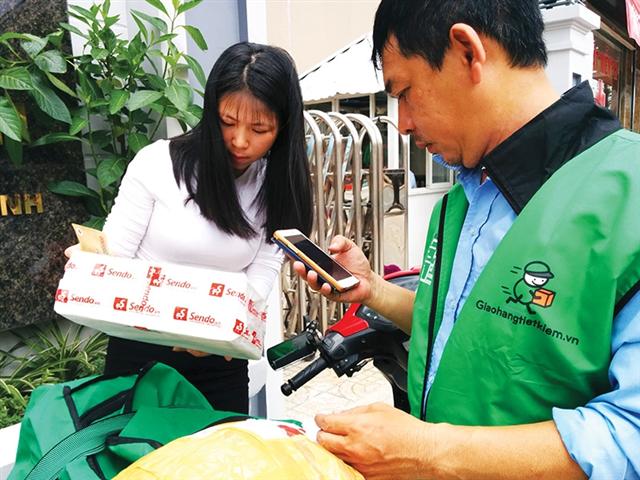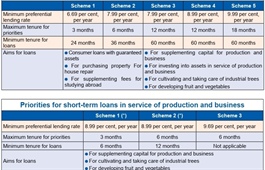End of the game nigh for online tax dodgers
End of the game nigh for online tax dodgers
The age of unfettered freedom for online business and vendors is coming to a close as Vietnamese authorities are building policies to better trace these activities and collect the state’s due.

Millions of US dollars in taxes have been collected from individuals and companies doing business online, photo Le Toan
|
The management and tax collection from online business activities by individuals and companies on Facebook, Google, and e-commerce platforms is to be tightened by authorities, with the Ministry of Finance’s General Department of Taxation (GDT) leading the charge.
Dang Ngoc Minh, deputy director general of the GDT, said that the authority is looking to strengthen tax collection from both vendors and cross-border platforms.
“A lot of measures have been proposed to build the policy framework and introduce punishments for violations, along with cooperating with commercial banks to control the money flows leaving and entering Vietnam,” said Minh.
The authorities are currently building mechanisms to first identify individuals and organisations that are intentionally dodging their tax obligations, then trace their operations and collect the arrears. “Although their tricks are sophisticated, their business can always be traced through the systems where they operate. Taxation authorities can collaborate with others to find proof for tax collection,” reaffirmed Minh.
However, the legal framework is incomplete when it comes to e-payments, cryptocurrency payments, and managing cross-border platforms. “The tax authority will accelerate work to fill in these holes in 2021,” promised the deputy director general.
Previously, the Law on Tax Administration, which took effect last July, and its guiding documents including Decree No.126/2020/ND-CP, have expanded tax authorities’ capacity to collect arrears, particularly from individuals and companies attempting evasion.
Specifically, the decree’s Article 42 outlined the rules for tax declaration and tax calculation. Overseas providers of e-commerce, digital business, and other services that have no permanent establishment in Vietnam shall directly or through authorised representatives apply for a tax number and then declare and pay tax in Vietnam, in accordance with the regulations of the Ministry of Finance.
Meanwhile, under Article 30, commercial banks shall provide the account information of these enterprises to the authorities and automatically deduct and pay tax on the account holder’s behalf. It also directs banks to deduct the appropriate funds and pay tax on behalf of foreign suppliers that have not registered, declared, and paid tax in Vietnam but conduct online business with domestic buyers.
If the payment method allows, the payable taxes will be directly deducted from the amount that buyers pay to suppliers. Otherwise, the bank will follow up and draw up a monthly report for state authorities on the amount buyers have transferred to suppliers.
“This will help close the gap and strengthen the authority’s power of tax collection with the proliferation of online payments and cross-border e-commerce in the digital era. The traces of dealing from the bank account will help tax authorities to identify tax arrears and crack down on evasion,” said Nguyen Tuan, an e-commerce expert with 15 years of experience currently working for one of Vietnam’s leading technology companies.
Minh of the GDT added, “The authority is also drafting circulars to clarify the responsibilities of not only vendors and companies operating on digital platforms, but also of payment intermediaries, platform providers, and other related parties. These will also improve the efficiency of tax collection.”
In fact, during 2019 and 2020, approximately VND1 trillion ($43.5 million) of tax was collected from individuals and companies doing business on Facebook and Google on average each year, a marked improvement against the VND700-800 billion ($30.4-34.8 million) in 2018.
“This amount is expected to continuously increase thanks to the strong development of digital services. More and more people will go shopping and conduct non-cash payments due to COVID-19, making transactions more traceable,” Tuan said.
“The ‘golden age’ and freedom of cross-border platforms and their users are gradually ending. They are going to have to operate within the bounds of the law or leave the game altogether,” he added.
Looking beyond the vendors, the GDT is also planning to work with auditing and consulting firms, as well as cross-border platform developers like Google, Facebook, and Amazon to discuss their tax responsibilities and obligations in Vietnam, at least for corporate income tax and VAT.
Efforts in this direction include dialogues with individual parties and the crafting of policies and mechanisms to supervise these platforms’ operations.























